Existing User Log In
New User Registration
Register for a free account to gain full access to the VGChartz Network and join our thriving community.





America - Front


America - Back

By Evan Norris 19th Jul 2025 | 3,522 views
Atlus has been on a roll lately. By publishing terrific new releases like Metaphor: ReFantazio, Unicorn Overlord, and Shin Megami Tensei V, and supplementing those releases with impressive remakes and remasters of games from the mid-2000s, the RPG developer has demonstrated its current greatness and reminded the gaming community that it's been great for a very long time. Raidou Remastered: The Mystery of the Soulless Army, a remaster of the PS2 game Devil Summoner: Raidou Kuzunoha vs. the Soulless Army, serves as yet another reminder.
Raidou Remastered takes place in Tokyo during the Taishō era — an atypical setting for the Shin Megami Tensei series and its offshoots. You control Raidou Kuzunoha XIV, the latest in a long line of Devil Summoners from the Kuzunoha clan, which has protected the human realm from monsters for 1,300 years. When he's not safeguarding the capital from demonic incursions, Raidou spends his time as an apprentice detective at the Narumi Detective Agency. One day, Raidou and his colleague run into a mysterious young woman, who requests something truly troubling. "I want you...to kill me," she says. Immediately after, she's kidnapped by strange soldiers clad in red. Soon after, Raidou and his demonic allies take on the missing persons case, which gradually spirals into a much larger conspiracy.
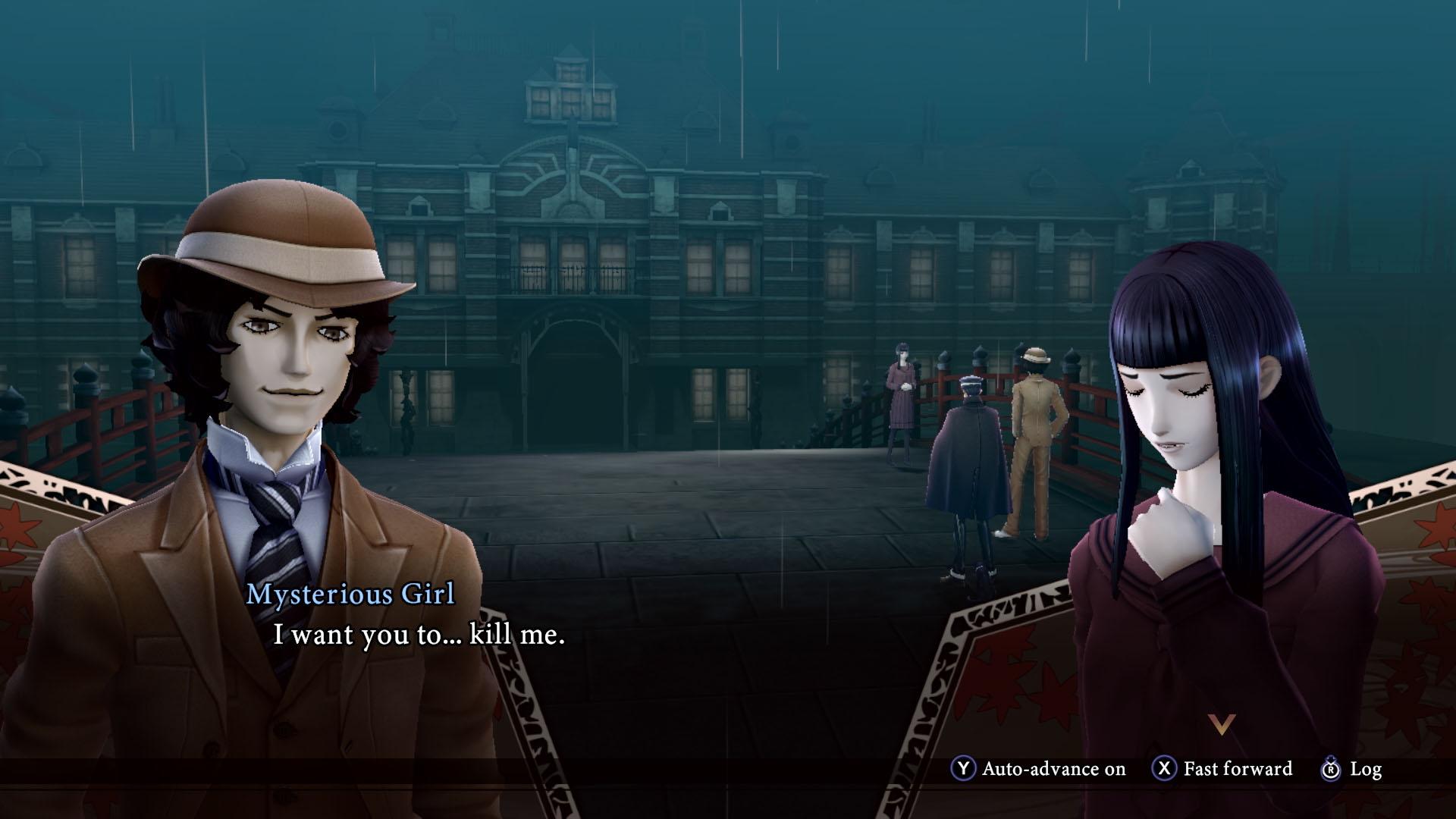
The story in Raidou Remastered is quite good. The scribes at Atlus keep you engaged with the mystery via small hints and bread crumbs, and keep you on your toes with plenty of twists and revelations. Perhaps even more memorable than the narrative, though, is the setting. The game takes place in a stylized, fantastical version of 1930s Tokyo, which is thoroughly captivating. Everything about the surroundings — the outfits, the architecture, the collision (sometimes literally) of pre-industrial norms and modern technology — makes this a distinct, immersive place to explore.
And that place has never looked better, thanks to this remaster. Atlus has enhanced character models and environments, doing so with a keen eye toward the original art direction, which was already outstanding. The game offers the same 30s-era Tokyo, and the same ghoulish demons, but with greater clarity, better image quality, and more dynamic colors. Some of the dusky realism of the original is lost, but the gains made elsewhere are absolutely worth it.
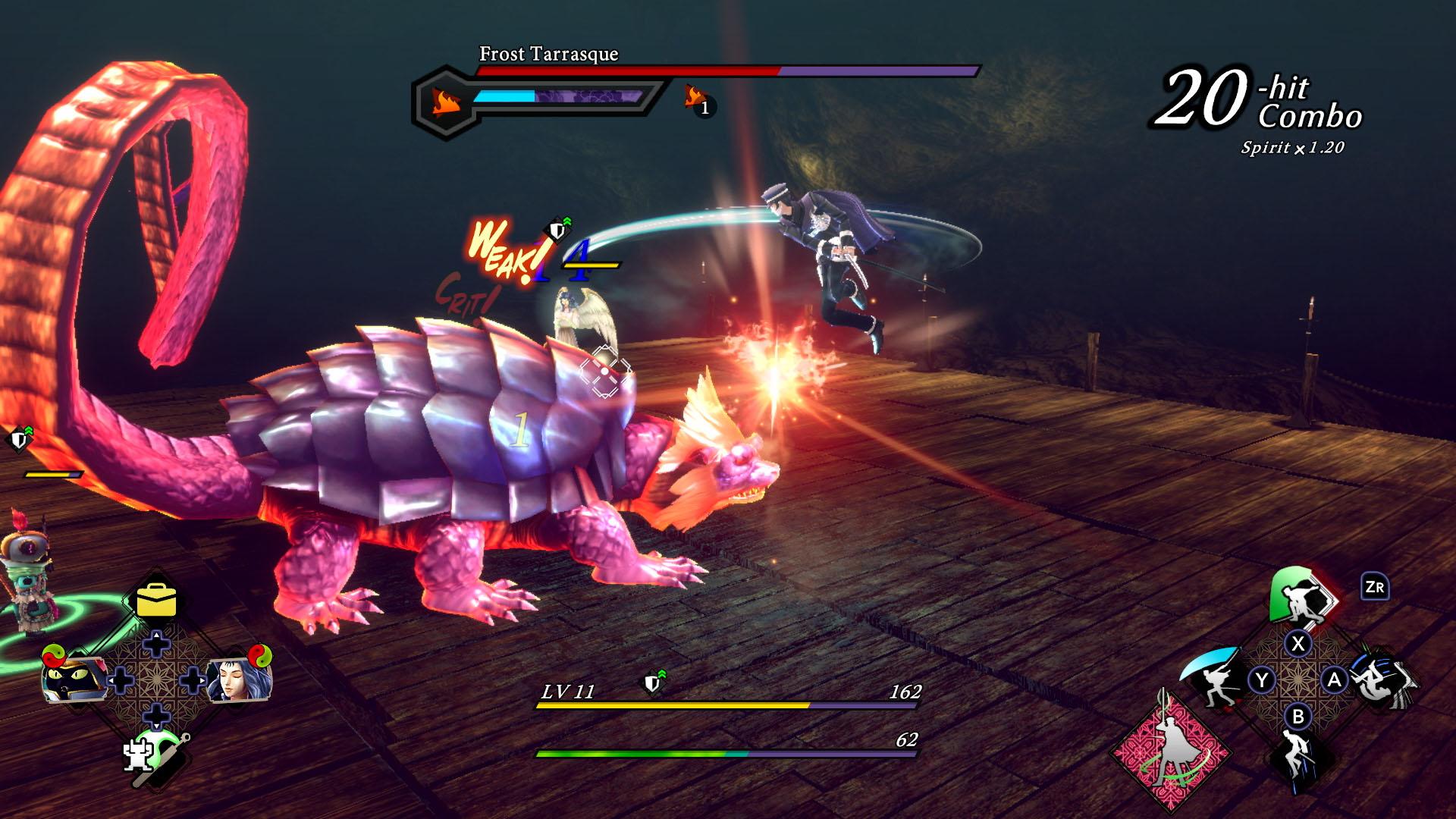
The visual upgrade is nothing, though, compared to the game's combat enhancements. It's here where Raidou Remastered leaps into the stratosphere. The combat system in this remaster is based on the fighting framework from the original's sequel, Devil Summoner 2: Raidou Kuzunoha vs. King Abaddon, but it goes beyond that.
First, Raidou has the basic commands — light sword attack, heavy sword attack, dodge, guard, and jump — plus the ability to summon allied demons in battle (he can now summon two demons simultaneously). Next, he will learn new Summoner Skills, special moves that exploit the affinity weaknesses of enemy demons. Finally, Raidou will access two new special abilities: Devil's Bane and Spirit Slash. The former is a powerful opportunity attack triggered when you knock a monster off balance or evade its assaults with perfect timing; and the latter is a wide strike that targets the elemental weakness of every enemy on the battlefield.
Keeping track of all these abilities, plus the movements and actions of your friendly demons, all in real time, can be a little overwhelming at first. Once you wrap your head around all the options and understand the central dilemma of combat — whether to prioritize damage to the enemy or the production of Magnetite, which powers your allies' magic attacks and allows you to recruit new demons — an amazingly intricate and exciting world of combat opens up in front of you.
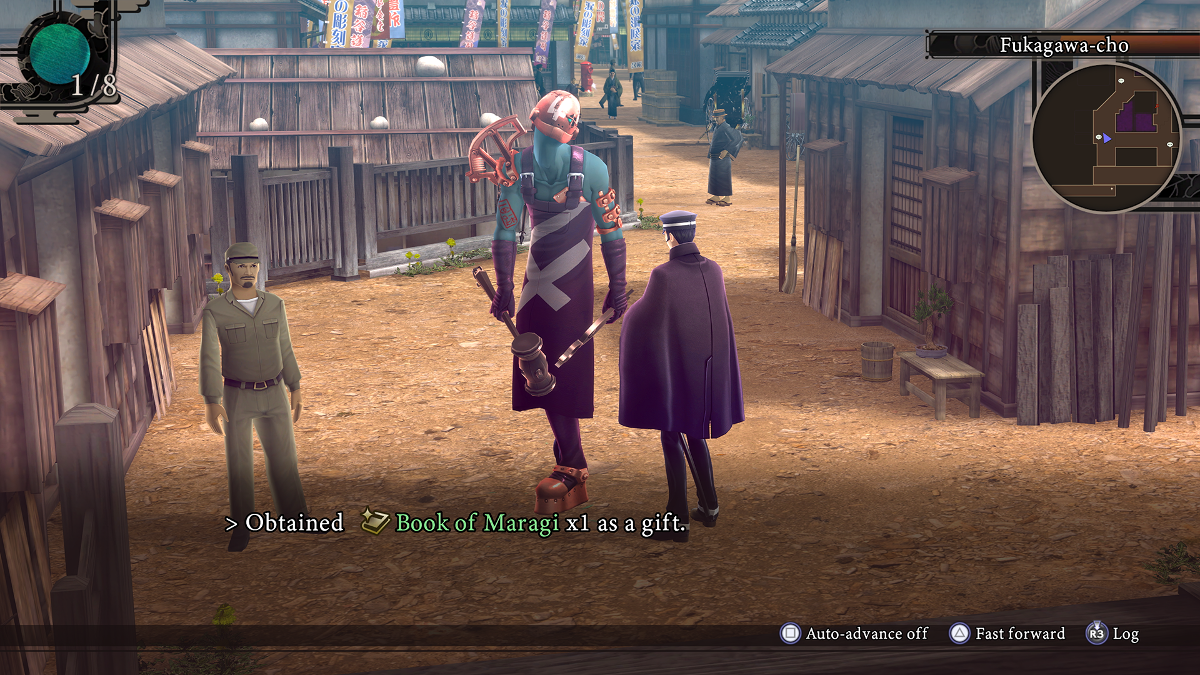
Regrettably, the other main component of Raidou Remastered, detective work, isn't as captivating as combat. Between enemy encounters, you'll explore the districts of Tokyo, tracking down leads, asking questions, and slowly unraveling the mystery of the soulless army. This phase of the game isn't bad — in fact, it serves as a nice breather between fights — but it can get a little repetitive. Often you'll interview a suspect in one corner of Tokyo, then report back to HQ in another corner, before returning to the scene of the crime in yet another. At one point during an early investigation, your feline companion Gouto remarks, incredulously, "Now we have to find someone else!?" The remaster partially removes the tedium by introducing Express Streetcars, which allow you to travel immediately to previously visited locations, but a feeling of monotony remains.
It doesn't help that the investigations are so straightforward. Solving a mystery doesn't typically require a lot of mental energy; it's more about being in the right place at the right time, and using your investigative tools when prompted. That said, there are some neat moments, like when you deploy a demon to pull a boat to shore so your entire party can move up a waterway.
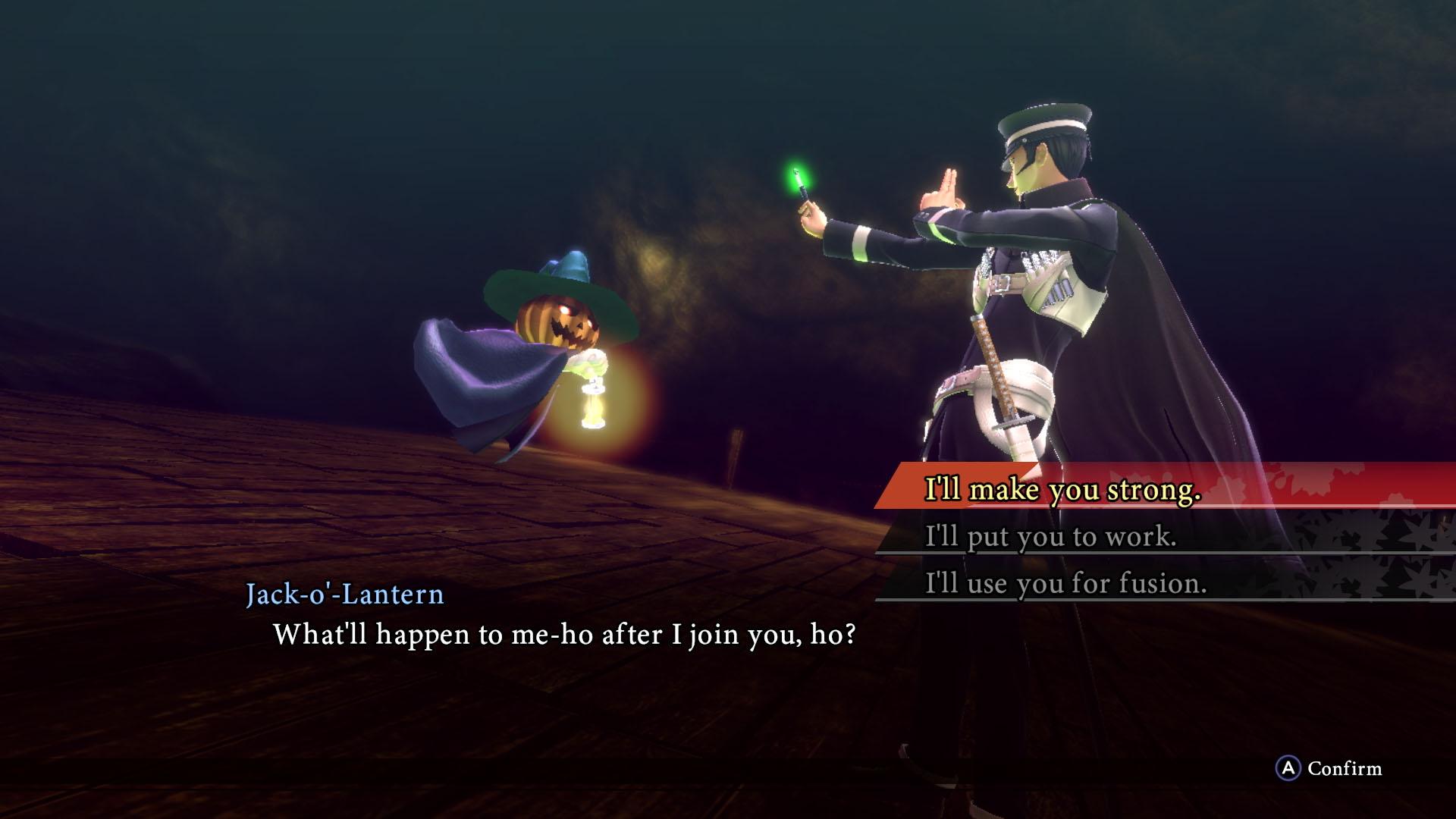
When you're not fighting monsters or investigating crimes, you'll probably find yourself in Goumaden, a subterranean area run by the sinister Dr. Victor. It's here where you'll participate in demon fusion, the mixing of two lower level demons to create a new, more powerful monster. Just like in all Shin Megami Tensei games, this process is ridiculously addictive. And it's now far easier and more approachable than in the PS2 version, due to several new features that remove lots of guesswork, including Search Fusion and Reverse Fusion. And, thanks to this remaster, there are now 120+ demons with which to experiment, up from ~70 in the original.
You can also leverage the technology of Goumaden for sword alchemy, which allows Raidou to craft more powerful weapons (with unique Summoner and Sword Skills) using a base weapon and materials. You'll lose hours tinkering around in Goumaden; it's that compelling.
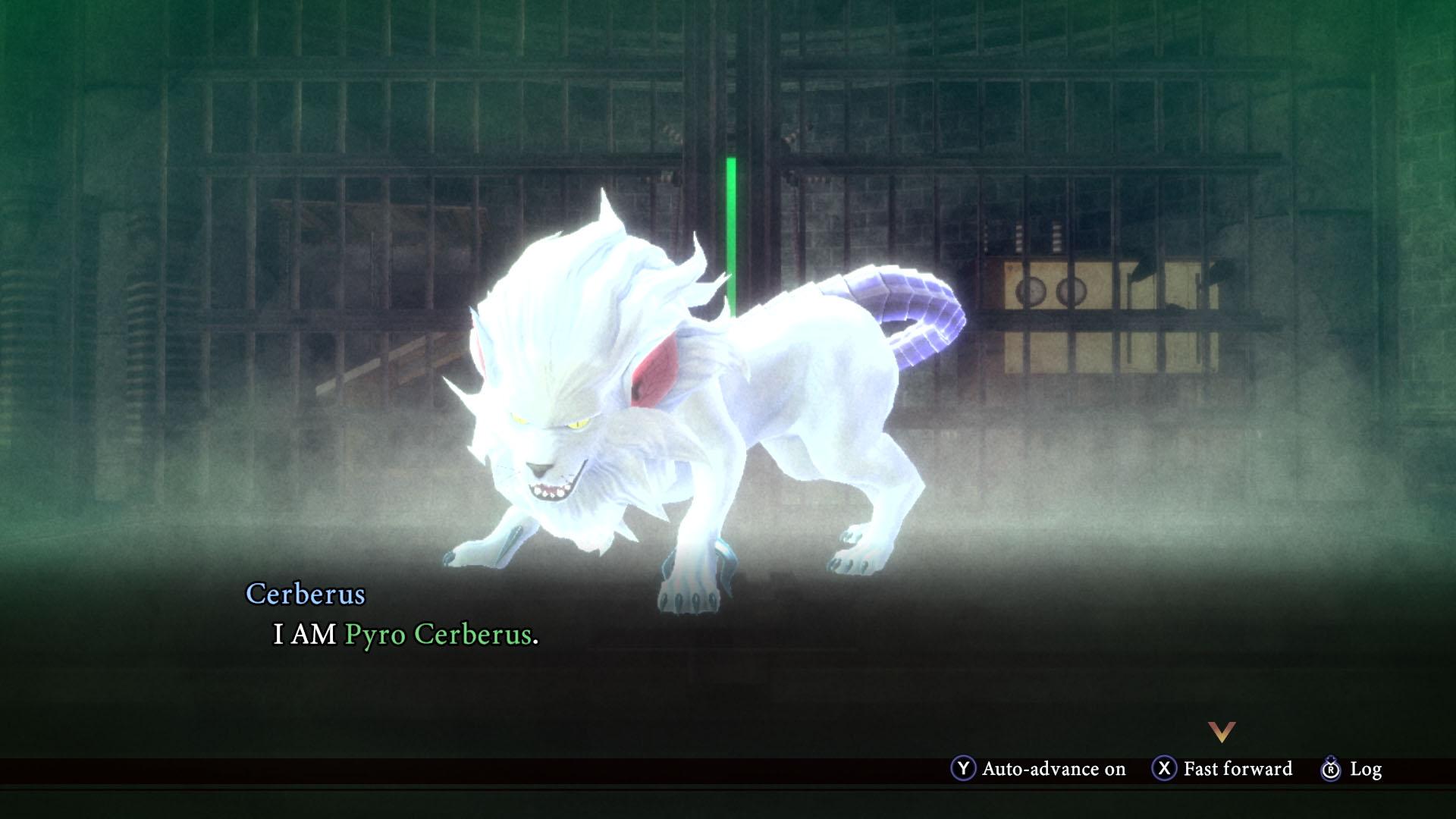
You'll lose hours elsewhere, of course. By the time the end credits roll, you can expect to have spent 25-35 hours hunting demons and solving crimes, depending on how much side content you pursue. Even when you finish the main campaign, it's not quite over. You'll unlock a New Game+ option that allows you to replay the adventure at the highest difficulty of Detective Legend. There's even a new special quest.
Raidou Remastered is one of the earliest Switch 2 titles, so I'm sure readers are interested in performance. I'm happy to report the game achieves a smooth 60 fps frame rate and 1080p in both docked and handheld modes. This is a notable improvement over the Switch version, which drops to 720p in handheld mode, and vacillates between 30 and 60 fps across both modes.
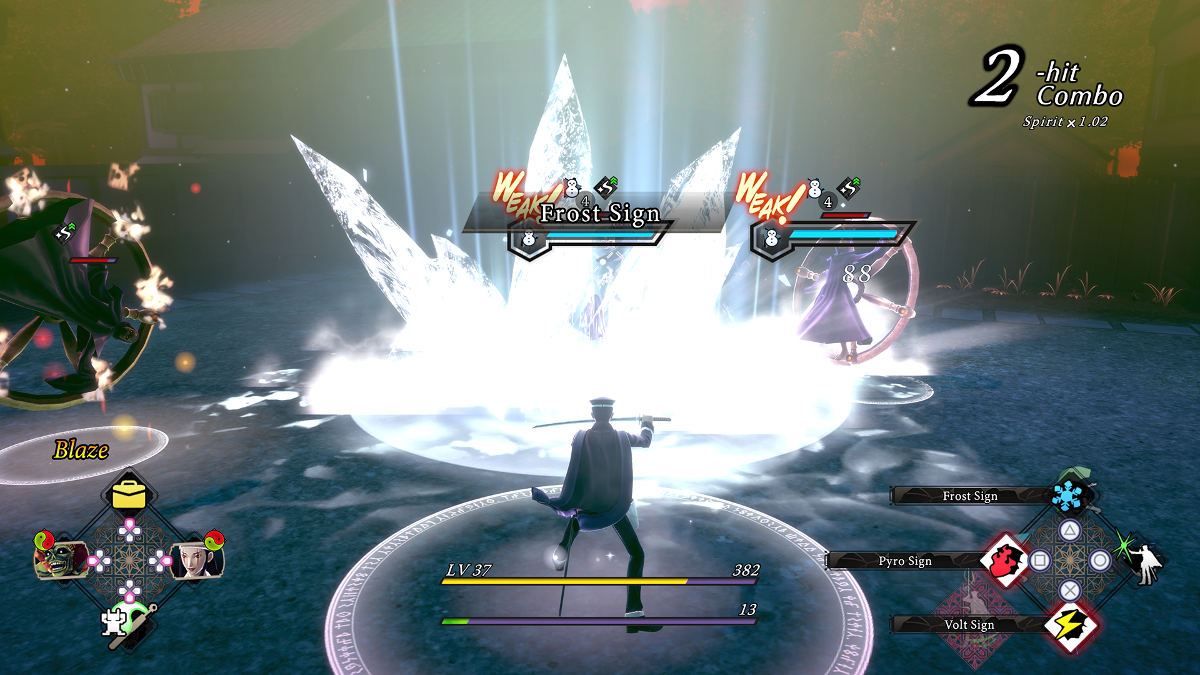
In an interview with TheGamer earlier this year, the director of Raidou Remastered, Kazuyuki Yamai, said, "We hope that both new releases and remaster/remake projects will work together to make everyone fall in love with our games even more."
Well, Yamai-san, it's working. And Raidou Remastered is a perfect example of why it's working. The remaster retains and enhances the finest parts of the PS2 original, smooths out the rough edges, and, ultimately, delivers the best, most fully-realized version of the game. It has a few warts, sure. There's a fair bit of tedious backtracking and the detective segments don't require that much actual sleuthing, but those flaws are overshadowed by great art direction, exceptional combat, an addictive demon fusion system, and lots of rewarding, engaging content. Keep 'em coming, Atlus.